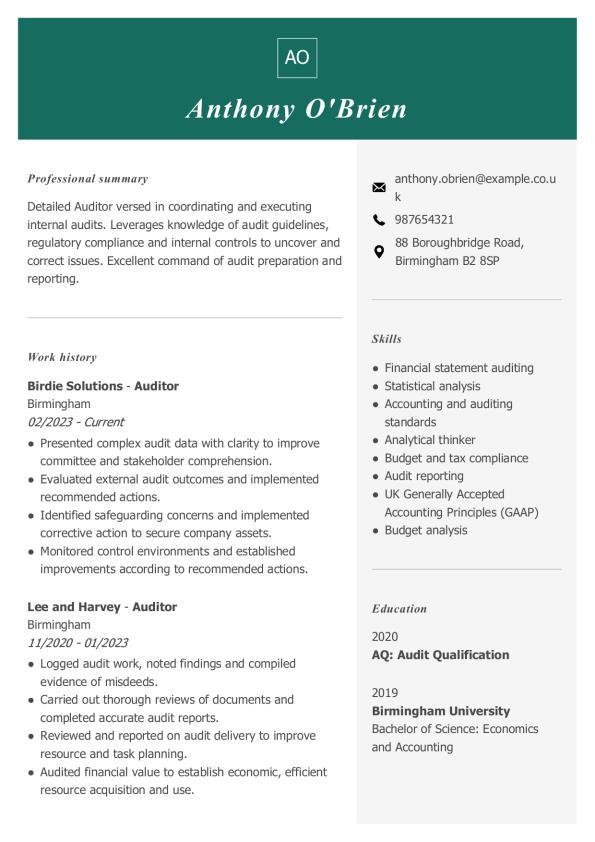
Which of the Following Are Common Audit Types | CVS
In today’s fast-paced business environment, organizations are constantly seeking ways to improve their operations and ensure financial stability. Audits play a crucial role in this endeavor, providing an independent assessment of an organization’s financial records and internal controls.
There are numerous types of audits, each tailored to specific objectives and requirements. Understanding the different types of audits can help organizations identify the most appropriate approach for their unique needs. In this comprehensive guide, we will explore the most common audit types, their purposes, and their significance in the business world.
Internal Audits
Internal audits are conducted by an organization’s internal audit department or by external auditors hired by the organization. Internal audits assess the effectiveness of an organization’s internal controls, risk management processes, and compliance with laws and regulations. The primary objective of an internal audit is to provide assurance to the organization’s management and stakeholders that the organization’s systems are functioning effectively and that financial information is reliable.
Internal audits can cover a wide range of areas, including financial reporting, operational efficiency, compliance, and information technology. Internal auditors may also provide consulting services to management, helping them identify areas for improvement and enhance the organization’s overall performance.
External Audits
External audits are conducted by independent auditors who are not employed by the organization being audited. External audits are typically required by law or by the organization’s stakeholders, such as shareholders or creditors. The primary objective of an external audit is to express an opinion on the fairness and accuracy of an organization’s financial statements.
External auditors examine an organization’s financial records, supporting documentation, and internal controls to assess whether the financial statements are free from material misstatements. External audits also provide assurance to stakeholders that the organization’s financial information is reliable and can be relied upon for decision-making.
Financial Audits
Financial audits focus solely on an organization’s financial statements. Financial auditors examine an organization’s financial records, including income statements, balance sheets, and cash flow statements, to ensure that they accurately reflect the organization’s financial position and performance.
Financial audits are designed to provide assurance that an organization’s financial statements are free from material misstatements, whether due to fraud, error, or other factors. Financial audits are essential for ensuring the integrity of an organization’s financial information and for maintaining investor confidence.
Operational Audits
Operational audits assess the effectiveness and efficiency of an organization’s operations. Unlike financial audits, which focus on financial information, operational audits examine non-financial aspects of an organization, such as its processes, procedures, and controls.
Operational audits can help organizations identify areas for improvement, reduce costs, and enhance operational efficiency. Operational audits can also assess an organization’s compliance with internal policies and procedures, as well as with external laws and regulations.
Compliance Audits
Compliance audits evaluate an organization’s adherence to specific laws, regulations, or contractual agreements. Compliance audits may be conducted by internal auditors, external auditors, or government agencies.
Compliance audits are designed to identify any instances of non-compliance and to ensure that an organization is operating in accordance with all applicable requirements. Compliance audits are particularly important for organizations that operate in heavily regulated industries, such as healthcare, finance, and energy.
Forensic Audits
Forensic audits are specialized audits that are conducted in response to suspected fraud or financial irregularities. Forensic auditors use their expertise in accounting, auditing, and investigation to uncover evidence of wrongdoing and to determine the extent of any financial loss.
Forensic audits are often used in cases of suspected fraud, embezzlement, or other financial crimes. Forensic auditors may also be called upon to assist in litigation or to provide expert testimony in court cases.
Information Technology Audits
Information technology (IT) audits assess the security and effectiveness of an organization’s IT systems and infrastructure. IT audits can help organizations identify vulnerabilities, improve security, and ensure that IT systems are aligned with the organization’s business objectives.
IT audits may also assess an organization’s compliance with IT-related laws and regulations, such as the Sarbanes-Oxley Act (SOX) and the Health Insurance Portability and Accountability Act (HIPAA). IT audits are essential for organizations that rely heavily on technology and for those that are subject to strict IT security requirements.
Latest Trends and Developments in Auditing
The auditing profession is constantly evolving to keep pace with changes in the business landscape and the increasing complexity of financial reporting. Here are some of the latest trends and developments in auditing:
- Increased use of data analytics: Auditors are increasingly using data analytics to improve the efficiency and effectiveness of audit procedures. Data analytics can be used to identify anomalies, trends, and patterns that may indicate potential risks or areas for improvement.
- Adoption of risk-based auditing: Auditors are adopting a more risk-based approach to auditing, focusing their efforts on areas that pose the greatest risks to an organization. Risk-based auditing helps ensure that audit resources are allocated where they are most needed.
- Greater emphasis on internal control: Auditors are placing greater emphasis on assessing the effectiveness of an organization’s internal controls. Strong internal controls can help prevent fraud, errors, and other financial irregularities.
- Increased collaboration between auditors and management: Auditors are working more closely with management to improve the audit process and ensure that audit findings are acted upon. Collaboration between auditors and management can help organizations achieve their business objectives and improve their overall performance.
- Use of technology to enhance audits: Auditors are using new technologies, such as artificial intelligence (AI) and blockchain, to enhance audit procedures and improve the quality of audit reporting.
Tips for Choosing the Right Audit Type
Choosing the right audit type is essential for ensuring that an audit meets an organization’s specific needs. Here are some tips for choosing the right audit type:
- Consider the purpose of the audit: Determine the specific objectives of the audit, such as whether the goal is to express an opinion on financial statements, assess the effectiveness of internal controls, or investigate suspected fraud.
- Identify the target areas: Determine the specific areas of the organization that will be subject to the audit, such as financial reporting, operations, or compliance.
- Select an appropriate audit team: Choose an audit team that has the necessary expertise and experience to conduct the audit effectively.
- Establish clear expectations: Communicate the audit scope, objectives, and timeline to all stakeholders involved in the audit.
- Monitor the audit process: Regularly review the progress of the audit and provide feedback to the audit team as needed.
Expert Advice on Auditing
Here is some expert advice on auditing from industry professionals:
- Stay up-to-date on the latest auditing standards and best practices: The auditing profession is constantly evolving, so it is important for auditors to stay up-to-date on the latest developments.
- Be independent and objective: Auditors must maintain their independence and objectivity throughout the audit process to ensure the accuracy and reliability of their findings.
- Communicate clearly and effectively: Auditors must be able to communicate their findings clearly and effectively to management, stakeholders, and other interested parties.
- Be ethical and professional: Auditors must adhere to the highest ethical standards and professional conduct.
- Seek continuous improvement: Auditors should continuously seek opportunities to improve their knowledge, skills, and abilities.
FAQ on Audit Types
Here are some frequently asked questions (FAQs) about audit types:
- What is the difference between an internal audit and an external audit?
- What is the purpose of a financial audit?
- What is the role of an operational audit?
- What is a compliance audit?
- What is a forensic audit?
Internal audits are conducted by an organization’s internal audit department or by external auditors hired by the organization. External audits are conducted by independent auditors who are not employed by the organization being audited.
The purpose of a financial audit is to express an opinion on the fairness and accuracy of an organization’s financial statements.
Operational audits assess the effectiveness and efficiency of an organization’s operations.
Compliance audits evaluate an organization’s adherence to specific laws, regulations, or contractual agreements.
Forensic audits are specialized audits that are conducted in response to suspected fraud or financial irregularities.
Conclusion
Audits play a crucial role in ensuring the financial stability and operational effectiveness of organizations. By understanding the different types of audits and their purposes, organizations can identify the most appropriate approach for their specific needs.
Whether it’s an internal audit to assess internal controls, an external audit to express an opinion on financial statements, or a specialized audit to investigate suspected fraud, audits provide valuable insights and assurance to stakeholders.

Image: cleveland.com

Image: alwafd.org
Accounting Accountant Resume Examples for 2024: Templates & Tips Purpose. The Audit Committee (the “Committee”) was created by the Board of Directors of the Company (the “Board”) to: assist the Board in its oversight of: the integrity of the financial statements of the Company; the qualifications, independence, performance and engagement of the Company’s independent registered public accounting